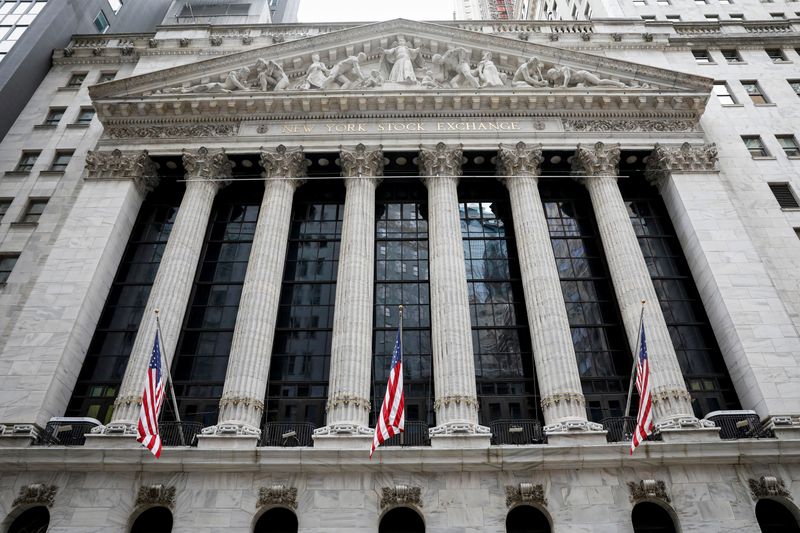(Reuters) – The S&P 500 ended lower on Tuesday, weighed down by energy and industrial stocks as investors awaited the result of the Federal Reserve’s two-day policy meeting.
The U.S. stock market lacked direction for much of the day after the S&P 500 and Dow Jones Industrial Average closed at record highs on Monday. Wall Street has recently benefited from optimism about a $1.9 trillion fiscal stimulus package and ongoing vaccination drives that have bolstered views that the economy is on a path to recovery.
At the same time, fears about an overheating economy and a recent increase in interest rates have increased scrutiny on the Fed’s two-day meeting, where policymakers are likely to raise economic forecasts and repeat their pledge to remain accommodative for the foreseeable future.
The Nasdaq ended higher. Apple Inc rose 1.3% after Evercore ISI hiked its price target on the iPhone maker’s shares to the highest among analysts covering the company, according to Refinitiv data.
Wall Street’s fear gauge hit a five-week low at 19.68 points. A midafternoon rise in the 10-year Treasury yield to 1.62% nipped some enthusiasm for high-growth stocks. The benchmark U.S. 10-year Treasury hit a 13-month high last week.
Investors have slightly increased their cash allocation, deeming that inflation and “taper tantrums” could topple the record rally in financial markets, BofA’s March fund manager survey showed on Tuesday.
“This Fed meeting is one of the most important ones for the market in a long time. It is the first we have had after the recent inflation rate rise and concerns about inflation,” said Tom Martin, senior portfolio manager at Globalt Investments in Atlanta.
Data showed retail sales dropped more than expected in February due to bitterly cold weather across the country. Another report indicated winter storms in Texas led to a plunge in U.S. factory output last month.
The Dow Jones Industrial Average fell 0.39% to end at 32,825.95 points, while the S&P 500 lost 0.16% to 3,962.71.
The Nasdaq Composite edged up 0.09% to 13,471.57.
After tumbling 11% from its Feb. 12 record high through early March, the Nasdaq has mostly recovered and is now down about 4% from its all-time high close.
Volume on U.S. exchanges was 12.2 billion shares, compared with the 14.4 billion average for the full session over the last 20 trading days.
The S&P 500 energy index tumbled almost 3% after a drop in oil prices while financials and industrials also retreated more than 1%. The communication services and technology indexes both rose more than 0.7%.
The Russell growth index rose 0.37%, while the Russell value index fell 0.71% in a reversal of a recent trend away from technology and other high-growth stocks.
Ford Motor Co dropped 5.4% after announcing a $2 billion convertible debt deal.
Declining issues outnumbered advancing ones on the NYSE by a 1.77-to-1 ratio; on Nasdaq, a 2.31-to-1 ratio favored decliners.
The S&P 500 posted 63 new 52-week highs and no new lows; the Nasdaq Composite recorded 220 new highs and 22 new lows.
(Reporting by Noel Randewich in San Francisco and Medha Singh and Shashank Nayar in Bengaluru; Editing by Maju Samuel and Matthew Lewis)

























